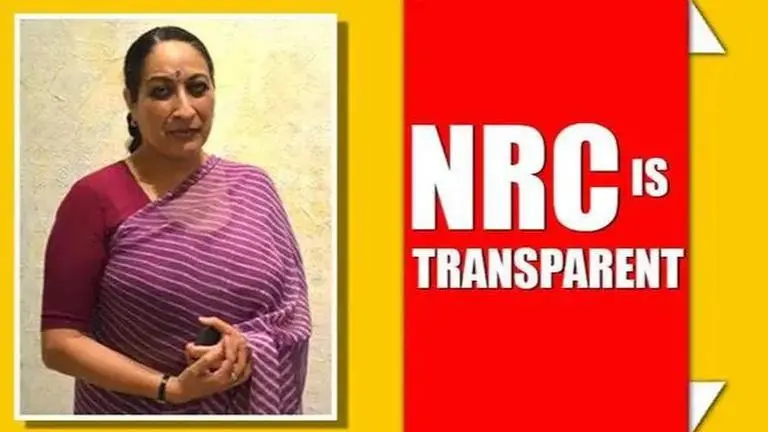Updated 10 September 2019 at 22:49 IST
NRC is a statutory, transparent and SC mandated process: MEA at UNHRC
Vijay Thakur Singh, Secretary (East), MEA stated that the NRC was a statutory, transparent and non-discriminatory SC mandated process, complying with democracy.
- India News
- 3 min read

Vijay Thakur Singh, Secretary (East), Ministry of External Affairs (MEA) put forth India's official position on the National Register of Citizens (NRC) at the United Nations Human Rights Council (UNHRC) in Geneva on Tuesday. She stated that the NRC was a statutory, transparent and non-discriminatory legal process. Singh further added that it was mandated & monitored by the Supreme Court of India. She assured the international community that any decision taken during its implementation would comply with the Indian law and would be consistent with the country’s democratic traditions.
Michelle Bachelet comments on NRC
The United Nations High Commissioner for Human Rights, Michelle Bachelet expressed concern about the NRC process in Assam earlier on Monday. She was speaking at the 42nd session of the UNHRC in Geneva. She opined that NRC had caused 'great uncertainty and anxiety'. Bachelet also commented on the communication shutdown and detainment of political leaders in Jammu and Kashmir.
In her opening statement, she said, “The recent National Register of Citizens verification process in the North-East Indian state of Assam has caused great uncertainty and anxiety, with some 1.9 million people excluded from the final list published on August 31. I appeal to the government to ensure due process during the appeals process, prevent deportation or detention, and ensure people are protected from statelessness.”
Advertisement
Pakistan rumour-mongers on NRC, India dispels fears
Pakistan Prime Minister Imran Khan had fired a salvo at the Indian government by alleging that a particular community was facing genocide. He connected NRC with the Kashmir issue, opining that it was part of the Indian government's larger strategy against a certain group of people. Meanwhile, the Ministry of Home Affairs in India listed the various legal recourses available to the people excluded from the final NRC list. The Centre, as well as the Assam government, assured that no individual would be sent to the detention centre until the exhaustion of every possible legal remedy.
Advertisement
The NRC demand in Assam
Initially published in 1951, the NRC was specifically demanded in Assam by the All Assam Students’ Union (AASU) due to the centuries-old illegal migration of people. The ill-treatment of people in East Pakistan and the subsequent war in 1971 exacerbated the situation as thousands of persons from that region entered Assam. The Assam Accord signed by Rajiv Gandhi in 1985 principally agreed to the AASU’s demand. However, it took decades before the process commenced, after the direction of the Supreme Court.
Published By : Akhil Oka
Published On: 10 September 2019 at 20:25 IST
